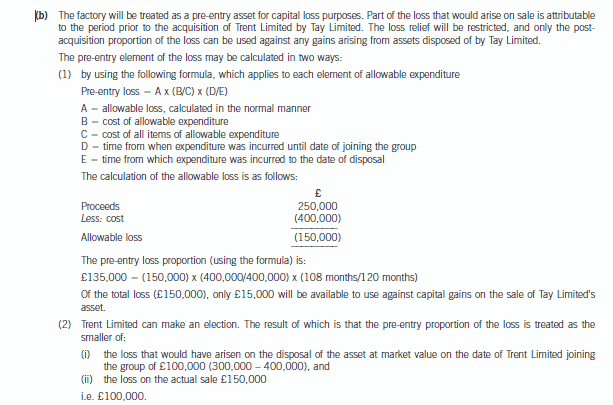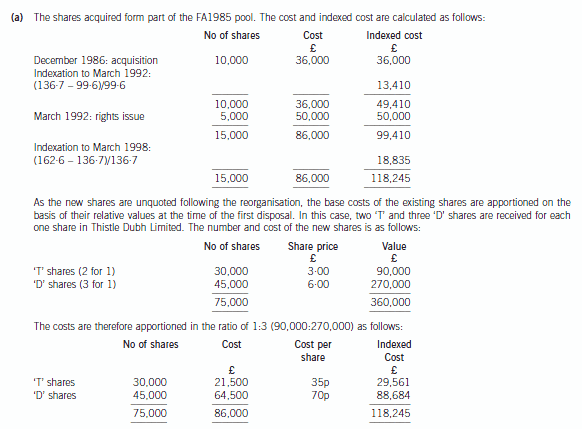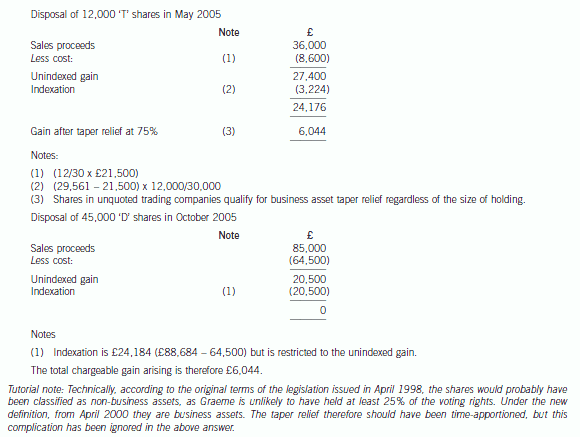一起了解!ACCA下午考试几点开始,需要注意什么
发布时间:2020-04-08
每个ACCA考试季,总共会有5天的时间,每天都会有上午场和下午场进行不同科目的考试。除了考试时间有所不同之外,其他考场政策均一致。在中国区一般统一为下午15:00开始考试,考试时需要注意以下几点注意事项:
ACCA机考注意事项:
- 可接受的证件类型包括护照、驾照和身份证。学生证等非官方发布的证件不属于有效证件。
- 入场前请提前将手机及其他电子产品关闭,包括闹钟及任何提示音,并放在指定区域,请勿随身携带。如考试期间发现随身携带有手机及其他智能电子产品,将被视为违规行为。
- 食品及饮料不可带入(除去包装的透明瓶装水除外),如果考试中需要服食药物请提前告知监考。
- 任何书籍、笔记、或者其他与考试相关材料都需存放在指定区域,不可带入考试座位。
- 考试中可以使用不具备编程功能、无线通讯功能和文字存储功能的科学计算器,有其他额外功能的计算器不允许使用。(监考人员有权暂时收走不符合要求的计算器)计算器请提前准备好,现场没有备用计算器提供,考试期间也不能互相借用。
- 入场后请根据监考指示,按照座位上的号码对号入座,并将身份证件和准考证放在桌角,以便监考进行二次核对。
- 每位考生桌上会备有圆珠笔一支及草稿纸一张,考生入座后请勿触碰任何考试物品,包括键盘鼠标等。请勿提前在草稿纸上作任何书写。
迟到及提早交卷规定:
在开考后1小时内(上午10:00前及下午15:00前)到达的迟到考生可以入场,但不能补偿ACCA考试时间。开考1小时以后到达的考生不能入场。
考试开始后不可以提前交卷离场。
ACCA随时机考注意事项:
ACCA考前准备
1. 考生须在开始前30分钟到达ACCA考试地点,由监考老师对考生进行核查考生本人身份证、ACCA 注册号。
2. 考生可选择开考前进行网上测试(见机考中心通知),也可选择开考前1小时到达考点,在机考中心进行测试,熟悉机考流程。
3. 考生在考试开始前 15 分钟经过监考老师批准方可进入考场。逾时不得再进入考场。
进入考场
1. 考生进入考场后必须把考试相关书籍材料等放到指定位置,并将手机等通讯设备关闭。考生只允许携带本人身份证、笔、单功能计算器进入考场,否则一律按作弊处理。
2.考试开始前,监考人员会宣读考场纪律;考生需要在电脑上输入个人信息,监考人员会核对考生的身份;身份核对后,电脑上会显示出3页考试操作指南,考生仔细阅读,得到监考人员的允许后才可点击考试科目,开始考试。
3.考试开始时,题目会直接在屏幕上显示,请直接在电脑上输入答案。
4.考试结束后,需要打印2份考试成绩通知单,自己保留一份,机考中心保留一份。
5.机考中心会在考试结束后上传考试成绩,72小时内成绩会上传到考生的MYACCA成绩记录中。
6. 考试费用一旦缴付,如因考生自身原因缺考,作弃权处理,不须考虑退款事宜。
7. ACCA机考中心保留因不可抗力因素(如网络问题,停电等)调整机考时间或取消考试的权力。
又到了与大家说再见的时候了,以上就是今天51题库考试学习网为大家分享的全部内容,如有其他疑问请继续关注51题库考试学习网!
下面小编为大家准备了 ACCA考试 的相关考题,供大家学习参考。
(c) Discuss the difficulties that may be experienced by a small company which is seeking to obtain additional
funding to finance an expansion of business operations. (8 marks)
(c) Small businesses face a number of well-documented problems when seeking to raise additional finance. These problems have
been extensively discussed and governments regularly make initiatives seeking to address these problems.
Risk and security
Investors are less willing to offer finance to small companies as they are seen as inherently more risky than large companies.
Small companies obtaining debt finance usually use overdrafts or loans from banks, which require security to reduce the level
of risk associated with the debt finance. Since small companies are likely to possess little by way of assets to offer as security,
banks usually require a personal guarantee instead, and this limits the amount of finance available.
Marketability of ordinary shares
The equity issued by small companies is difficult to buy and sell, and sales are usually on a matched bargain basis, which
means that a shareholder wishing to sell has to wait until an investor wishes to buy. There is no financial intermediary willing
to buy the shares and hold them until a buyer comes along, so selling shares in a small company can potentially take a long
time. This lack of marketability reduces the price that a buyer is willing to pay for the shares. Investors in small company
shares have traditionally looked to a flotation, for example on the UK Alternative Investment Market, as a way of realising their
investment, but this has become increasingly expensive. Small companies are likely to be very limited in their ability to offer
new equity to anyone other than family and friends.
Tax considerations
Individuals with cash to invest may be encouraged by the tax system to invest in large institutional investors rather than small
companies, for example by tax incentives offered on contributions to pension funds. These institutional investors themselves
usually invest in larger companies, such as stock-exchange listed companies, in order to maintain what they see as an
acceptable risk profile, and in order to ensure a steady stream of income to meet ongoing liabilities. This tax effect reduces
the potential flow of funds to small companies.
Cost
Since small companies are seen as riskier than large companies, the cost of the finance they are offered is proportionately
higher. Overdrafts and bank loans will be offered to them on less favourable terms and at more demanding interest rates than
debt offered to larger companies. Equity investors will expect higher returns, if not in the form. of dividends then in the form
of capital appreciation over the life of their investment.
(b) Advise on the capital gains implications should Trent Limited’s old building be sold as proposed. Support your
advice with relevant calculations. (4 marks)

This gives a higher post-entry loss of £50,000 (150,000 – 100,000) and so it is advisable for Trent Limited to make
this election.
The £100,000 of pre-entry losses are still available, but can only be set against gains on assets which:
(i) Trent Limited sold prior to being acquired (subject to the normal carry back restrictions), or
(ii) Trent Limited already owned when it was acquired, or
(iii) Trent Limited acquired from outside the group and used in its trade after being bought by Tay Limited.
2 Graeme, aged 57, is married to Catherine, aged 58. They work as medical consultants, and both are higher rate
taxpayers. Barry, their son, is aged 32. Graeme, Catherine and Barry are all UK resident, ordinarily resident and
domiciled. Graeme has come to you for some tax advice.
Graeme has invested in shares for some time, in particular shares in Thistle Dubh Limited. He informs you of the
following transactions in Thistle Dubh Limited shares:
(i) In December 1986, on the death of his grandmother, he inherited 10,000 £1 ordinary shares in Thistle Dubh
Limited, an unquoted UK trading company providing food supplies for sporting events. The probate value of the
shares was 360p per share.
(ii) In March 1992, he took up a rights issue, buying one share for every two held. The price paid for the rights
shares was £10 per share.
(iii) In October 1999, the company underwent a reorganisation, and the ordinary shares were split into two new
classes of ordinary share – ‘T’ shares and ‘D’ shares, each with differing rights. Graeme received two ‘T’ and three
‘D’ shares for each original Thistle Dubh Limited share held. The market values for the ‘T’ shares and the ‘D’
shares on the date of reorganisation were 135p and 405p per share respectively.
(iv) On 1 May 2005, Graeme sold 12,000 ‘T’ shares. The market values for the ‘T’ shares and the ‘D’ shares on that
day were 300p and 600p per share respectively.
(v) In October 2005, Graeme sold all of his ‘D’ shares for £85,000.
(vi) The current market value of ‘T’ shares is 384p per share. The shares remain unquoted.
Graeme and Catherine have owned a holiday cottage in a remote part of the UK for many years. In recent years, they
have used the property infrequently, as they have taken their holidays abroad and the cottage has been let out as
furnished holiday accommodation.
Graeme and Catherine are now considering selling the UK country cottage and purchasing a holiday villa abroad.
Initially they plan to let this villa out on a furnished basis, but following their anticipated retirement, would expect to
occupy the property for a significant part of the year themselves, possibly moving to live in the villa permanently.
Required:
(a) Calculate the total chargeable gains arising on Graeme’s disposals of ‘T’ and ‘D’ ordinary shares in May and
October 2005 respectively. (7 marks)


声明:本文内容由互联网用户自发贡献自行上传,本网站不拥有所有权,未作人工编辑处理,也不承担相关法律责任。如果您发现有涉嫌版权的内容,欢迎发送邮件至:contact@51tk.com 进行举报,并提供相关证据,工作人员会在5个工作日内联系你,一经查实,本站将立刻删除涉嫌侵权内容。
- 2020-05-02
- 2020-04-10
- 2020-03-08
- 2020-01-09
- 2020-04-01
- 2019-10-03
- 2020-01-09
- 2020-02-19
- 2020-01-09
- 2020-05-20
- 2020-01-09
- 2020-05-02
- 2019-12-31
- 2020-05-15
- 2019-07-19
- 2020-05-15
- 2020-04-21
- 2020-01-09
- 2020-01-09
- 2020-03-28
- 2020-01-30
- 2020-03-29
- 2020-02-12
- 2021-06-24
- 2020-04-22
- 2020-01-30
- 2020-01-09
- 2020-01-09
- 2020-01-09
- 2020-01-09